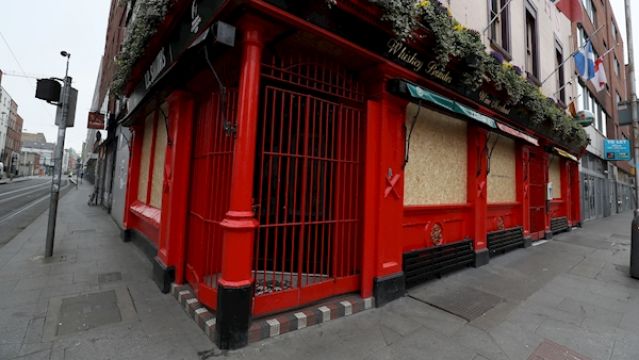The 2020 statistical yearbook, which contains data from all areas of Irish life, includes information on the Covid-19 pandemic and its impact on the country.
According to the yearbook, 35 per cent of Irish people are feeling very nervous, compared to 18.2 per cent recorded in 2018.
Some 26.6 per cent of people reported feeling lonely, while 32.4 per cent said they are feeling downhearted or depressed this year.
Despite the ongoing pandemic, overall life satisfaction increased between April and August of this year, jumping from 12.2 per cent to 16.3 per cent.
Covid behaviours
The data also looks at changes in people's behaviour brought about by Covid-19 restrictions, showing 37.1 per cent of people increased the frequency of exercise, while 59.1 per cent also reported an increased in the amount time spent online.
Some 22.2 per cent of people said they had noticed their alcohol consumption go up during the restrictions, while 17.2 per cent said their consumption decreased.
With all the changes in behaviour, 13.7 per cent of respondents said they have seen their weight decrease, while 40.9 per cent gained weight and 45.4 per cent noted no change.
Overall, just under 80 per cent of people said they have reduced their spending since the introduction of restrictions, with only 7.6 per cent of people reporting an increase in their income since the onset of the pandemic.
Beyond Covid-19, the CSO information also points to a number of interesting trends in Irish life.
In 2020, 43.4 per cent of people aged between 15 and 64 had a third-level qualification, with 80.2 per cent reaching high secondary school or above.
The yearbook also drew information from crime and victim statistics from 2019, asking adults how safe they feel walking in their local area at night, highlighting that only 29 per cent of women would say they feel "very safe", compared to 60 per cent of men.
Most women, 35 per cent, said they felt "fairly safe", compared to 27 per cent of men. 22 per cent of women said they felt "a little unsafe" and 14 per cent said they felt "very unsafe"; both levels were reported at 9 and 4 per cent for men respectively.
Internet access
With the move to online learning and remote working, the yearbook also shows that 91 per cent of Irish households have access to internet, with Dublin and the Mid-East recording the highest levels of internet connectivity.
The percentage of households connected to the internet was lowest near the Border, with 84 per cent of homes having access, followed by the West and South-East tied on 89 per cent.
Females had a marginally higher rate of daily internet usage at 80 per cent, compared to 78 per cent of males, while 97 per cent of students said they go online every day.
The data also showed that clothes or sports goods were the most popular internet purchases in 2019, followed by holiday accommodation, travel arrangements and event tickets.
This year's release also contains county-by-county information, showing data such as the top three occupations, number of births, marriages and deaths, which can be viewed on the CSO website.







